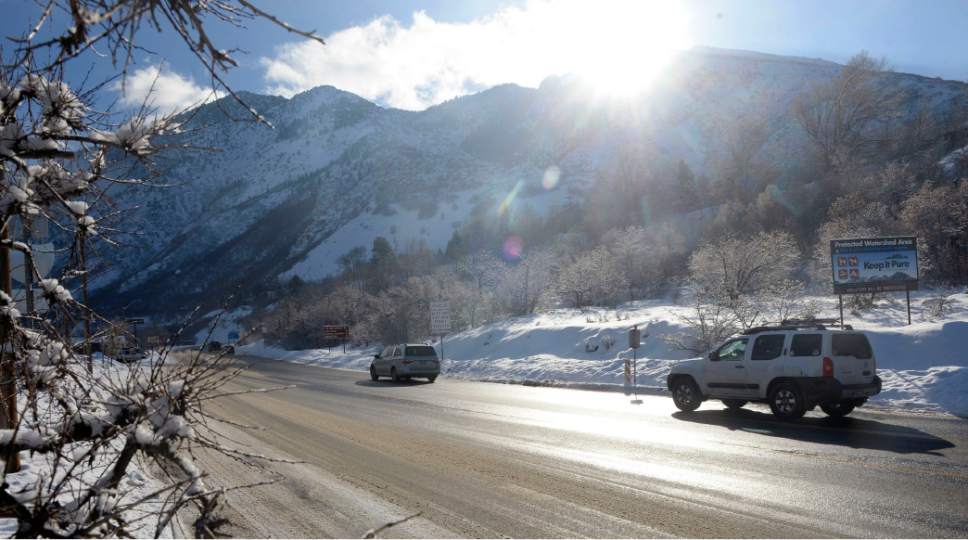This is an archived article that was published on sltrib.com in 2016, and information in the article may be outdated. It is provided only for personal research purposes and may not be reprinted.
The Salt Lake County Council delayed action Tuesday on the future of the Mountain Accord planning process for a month — until after the Nov. 8 general election.
After hearing 18 speakers lambaste or praise the 2½-year effort to forge a blueprint for protecting the Wasatch Mountains, council members said they still had too many questions to approve an interlocal agreement to turn Mountain Accord into a more formalized entity known as the Central Wasatch Commission.
Some of their issues involved details of the agreement, which would create an agency involving Salt Lake County, Salt Lake City, Sandy and Cottonwood Heights, for starters, but possibly Summit County and the Utah Department of Transportation.
The Central Wasatch Commission's job would be to implement measures recommended by the broad-based Mountain Accord to improve transportation, recreation and economic activity in the canyons while protecting the watershed and the environment.
The compromise has two key features: creating a federally protected area in the upper mountains and permanently setting ski-resort boundaries through land trades that allow more development around their bases.
Republican Councilman Michael Jensen said he needed to think through the commission's projected 50-year life.
GOP Councilwoman Aimee Winder Newton suggested some changes her colleagues could ponder in coming weeks — one to push for recommendations soon on canyon transportation improvements, another to place more checks and balances on the commission's authority.
She expressed hope that these revisions would help relieve the anxiety of "a lot of residents who feel they got left out of the process."
Newton was referring to several speakers whose complaints about the openness of Mountain Accord meetings mirror positions taken by Dave Robinson, Republican challenger to county Mayor Ben McAdams, who is chairman of Mountain Accord's executive committee.
In fact, one of the speakers, Mike Edwards, filed a complaint Monday with the Utah attorney general's office, asking for an investigation of Mountain Accord's procurement processes and whether they benefited consultants who contributed to McAdams' mayoral campaign.
McAdams rejected the complaint out of hand, calling it a "campaign stunt" by Robinson, who made the same allegations against the mayor the previous week and has been a vocal critic of the process and its impact on private landowners since its inception.
"As big as the canyons are, you're not going to have unanimous consent," McAdams said. "Not getting your way doesn't mean the project wasn't transparent."
Mountain Accord coordinator Laynee Jones said she could document that major consulting contracts went through an open-bidding process and that smaller ones were hers to assign under terms of the contract she got through bidding.
Jensen and Republican Steve DeBry came to McAdams' defense at Tuesday's council session. "I believe the mayor's heart is in the right place," DeBry said. "Nobody should ever question your integrity and your honesty."
Democratic Councilwoman Jenny Wilson said she does not share concerns about the transparency of the process, "but I do have concerns about how we do this, that we do it right. … I haven't done enough work on this."
Her party colleague, Jim Bradley, told commission foes not to expect the month of review to stop the agency from ultimately being created.
"The soul and heart behind Mountain Accord is the reality that we're loving the canyons to death," he said, adding that "we must address the use and abuse of those mountains. … You can't resurrect a canyon once you've destroyed it. I don't think the County Council will reject the notion of a structured body that will lead us into the future and protect those canyons. You can count on it."
Republican Richard Snelgrove concurred, albeit skeptical that 30 days is enough time to forge an acceptable agreement.
"Maybe 45 is better to solicit input," he said, "so the public is well aware of the impact this may have on their lives, their children's lives and generations to come."



